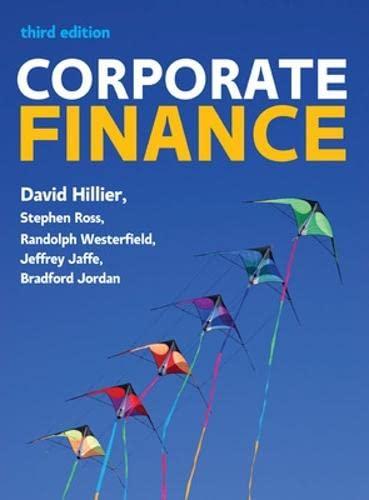As discussed in the text, in the absence of market imperfections and tax effects, we would expect
Question:
As discussed in the text, in the absence of market imperfections and tax effects, we would expect the share price to decline by the amount of the dividend payment when the equity goes ex dividend. Once we consider the role of taxes, however, this is not necessarily true. One model has been proposed that incorporates tax effects into determining the ex-dividend price (Elton and Gruber, 1970):

Here P0 is the price just before the share goes ex, PX is the exdividend share price, D is the amount of the dividend per share, tP is the relevant marginal personal tax rate on dividends, and tG is the effective marginal tax rate on capital gains.
(a) If tP = tG = 0, how much will the share price fall when the equity goes ex?
(b) If tP = 36.1 per cent and tG = 0 per cent, how much will the share price fall?
(c) If tP = 36.1 per cent and tG = 28 per cent, how much will the share price fall?
(d) What does this problem tell you about real-world tax considerations and the dividend policy of the firm?
Step by Step Answer:

Corporate Finance
ISBN: 9780077173630
3rd Edition
Authors: David Hillier, Stephen A. Ross, Randolph W. Westerfield, Bradford D. Jordan, Jeffrey F. Jaffe





